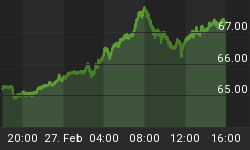Based on the October 2013 Market Overview report.
Even though the so-called "tapering" of the Fed did not take place in September it is that probable that it would happen in the near future? As the case of European Central Bank demonstrates, the shrinking of the balance sheet may happen smoothly (the ECB also expanded its balance sheet in the last few years, but recently it shrunk). The case of US is different in important aspects (in case of US it was mostly about real estate commercial paper and asset-backed securities, whereas in Europe it was about sovereign debts), but the question remains: how will the tapering look like and when will it take place?
We believe that if tapering happens, it might be done slowly in a very gradual and "don't rock the boat" manner by small adjustments of the balance sheet (at least at first). But apart from backing away from asset purchases, there is also the challenge of increasing interest rates which have been in a trough for a long time. When should this happen?
The Fed is consistently clear about when it plans to start the possible tapering. It all comes down to "improving labor markets" and keeping the inflation rate down at the longer run. This was the case with previous Fed's announcements and it is the same with the one from September 18th. As we heard, asset purchase program is not set on any particular course, therefore will be adjusted according to changing conditions.
The changing conditions would have to mean much higher employment, much higher inflation and most importantly much better conditions on the credit market. Only then should we expect to see some tapering, either in the form of decreased purchases, or in the form of increased interest rates (or both). So far we have not seen changes in the labor markets, prices and credit activities, which would justify a change in the Fed's behavior. Apart from that, we have not heard the words from the Fed itself suggesting this could happen. There is even more, because at the same time the Fed issued new forecasts with lower projections of GDP growth. This is hardly a sign the Fed should consider as promising for future tapering actions. Additionally, as the Fed's minutes tell us within a couple of weeks we could hear members of the Federal Open Market Committee come out against tapering, and then suddenly the FOMC starts to contemplate it. This entire mess indicates that the Fed is playing with expectations and testing the market rather than considering serious changes in its policies.
In the light of those factors, big twists in the market pricing behavior because of the meeting on the 18th seem like an exaggeration, even ludicrous. We do not see huge fundamental changes in the economy to justify those mood swings. Nevertheless, the reaction after the meeting confirms that the market was expecting something else. Perhaps it was supposed to be no tapering with the statement that some mild tapering is already happening.
Even though the position of the Fed's chief is about to change, we do not see any changes in Fed's policy whatsoever on the horizon. The long-term outlook for gold remains firm.
Thank you.
The above is a small excerpt from our latest gold Market Overview report. We encourage you to subscribe and read the full version today.















